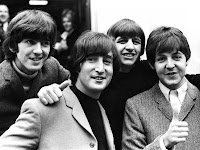 From Scientists to Singers- Famously Successful People Who Failed At First:
From Scientists to Singers- Famously Successful People Who Failed At First:Not everyone who's on top today got there with success after success. More often than not, those who history best remembers were faced with numerous obstacles that forced them to work harder and show more determination than others. Next time you're feeling down about your failures in college or in a career, keep these fifty famous people in mind and remind yourself that sometimes failure is just the first step towards success.
Scientists and Thinkers
These people are often regarded as some of the greatest minds of our century, but they often had to face great obstacles, the ridicule of their peers and the animosity of society.
Albert Einstein: Most of us take Einstein's name as synonymous with genius, but he didn't always show such promise. Einstein did not speak until he was four and did not read until he was seven, causing his teachers and parents to think he was mentally handicapped, slow and anti-social. Eventually, he was expelled from school and was refused admittance to the Zurich Polytechnic School. It might have taken him a bit longer, but most people would agree that he caught on pretty well in the end, winning the Nobel Prize and changing the face of modern physics.
Charles Darwin: In his early years, Darwin gave up on having a medical career and was often chastised by his father for being lazy and too dreamy. Darwin himself wrote, "I was considered by all my masters and my father, a very ordinary boy, rather below the common standard of intellect." Perhaps they judged too soon, as Darwin today is well-known for his scientific studies.
Robert Goddard: Goddard today is hailed for his research and experimentation with liquid-fueled rockets, but during his lifetime his ideas were often rejected and mocked by his scientific peers who thought they were outrageous and impossible. Today rockets and space travel don't seem far-fetched at all, due largely in part to the work of this scientist who worked against the feelings of the time.
Isaac Newton: Newton was undoubtedly a genius when it came to math, but he had some failings early on. He never did particularly well in school and when put in charge of running the family farm, he failed miserably, so poorly in fact that an uncle took charge and sent him off to Cambridge where he finally blossomed into the scholar we know today.
Socrates: Despite leaving no written records behind, Socrates is regarded as one of the greatest philosophers of the Classical era. Because of his new ideas, in his own time he was called "an immoral corrupter of youth" and was sentenced to death. Socrates didn't let this stop him and kept right on, teaching up until he was forced to poison himself.
Robert Sternberg: This big name in psychology received a C in his first college introductory psychology class with his teacher telling him that, "there was already a famous Sternberg in psychology and it was obvious there would not be another." Sternberg showed him, however, graduating from Stanford with exceptional distinction in psychology, summa cum laude, and Phi Beta Kappa and eventually becoming the President of the American Psychological Association.
Musicians
While their music is some of the best selling, best loved and most popular around the world today, these musicians show that it takes a whole lot of determination to achieve success.
Wolfgang Amadeus Mozart: Mozart began composing at the age of five, writing over 600 pieces of music that today are lauded as some of the best ever created. Yet during his lifetime, Mozart didn't have such an easy time, and was often restless, leading to his dismissal from a position as a court musician in Salzberg. He struggled to keep the support of the aristocracy and died with little to his name.
Elvis Presley: As one of the best-selling artists of all time, Elvis has become a household name even years after his death. But back in 1954, Elvis was still a nobody, and Jimmy Denny, manager of the Grand Ole Opry, fired Elvis Presley after just one performance telling him, "You ain't goin' nowhere, son. You ought to go back to drivin' a truck."
Igor Stravinsky: In 1913 when Stravinsky debuted his now famous Rite of Spring, audiences rioted, running the composer out of town. Yet it was this very work that changed the way composers in the 19th century thought about music and cemented his place in musical history.
The Beatles: Few people can deny the lasting power of this super group, still popular with listeners around the world today. Yet when they were just starting out, a recording company told them no. The were told "we don't like their sound, and guitar music is on the way out," two things the rest of the world couldn't have disagreed with more.
Ludwig van Beethoven: In his formative years, young Beethoven was incredibly awkward on the violin and was often so busy working on his own compositions that he neglected to practice. Despite his love of composing, his teachers felt he was hopeless at it and would never succeed with the violin or in composing. Beethoven kept plugging along, however, and composed some of the best-loved symphonies of all time–five of them while he was completely deaf.
http://www.onlinecollege.org/2010/02/16/50-famously-successful-people-who-failed-at-first/

No comments:
Post a Comment